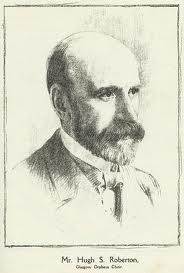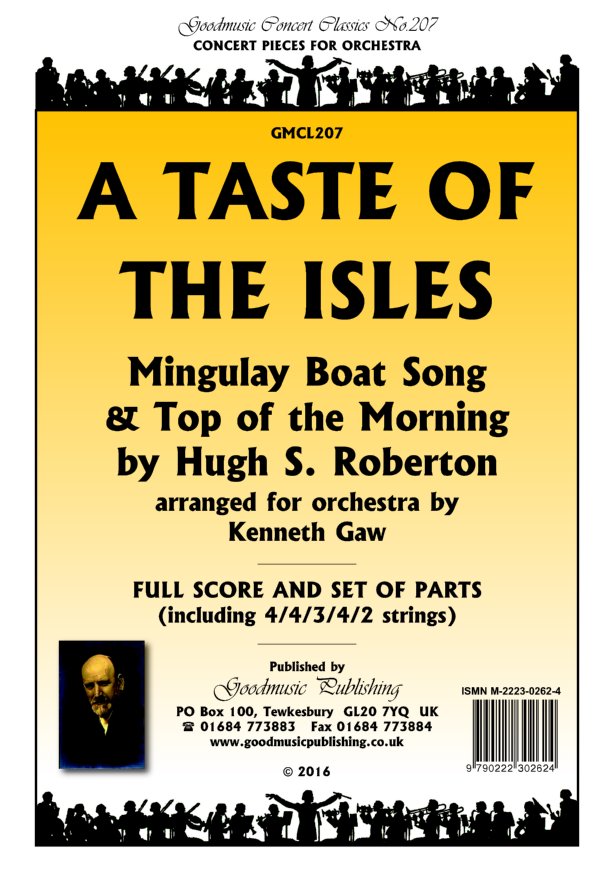A Taste of the Isles
Buy this item (out of stock)
Product ID: GM1 CL207
By Hugh S. Roberton
Publisher:
Goodmusic
Arranger:
2 Flutes, 2 Oboes, 2 Clarinets in Bb, 2 Bassoons, 4 Horns in F, 3 Trumpets in Bb, 3 Trombones, Timpani,Percussion (Snare Drum, Bass Drum, Cymbals, Tambourine, Marimba [optional]), Harp (or piano) [optional]Strings (Violin 1, Violin 2, Viola, Cell
Series:
Goodmusic Concert Classics
Genre:
Song, Gaelic
Line Up:
Symphony Orchestra
Duration:
5:00
Level: 3
Set & Score
This item is out of stock
About this item
Two contrasting songs from Hugh Roberton's "Songs of the Isles" arranged for orchestra to give a taste of the Scottish Isles.
The Mingulay Boat Song was written in the 1930s. The melody is from a traditional Gaelic tune, probably titled "Lochaber". The tune was part of an old Gaelic song, "Oran na Comhachaig" from Brae Lochaber.
Top of the Morning is a sheep-shearing song, the first part of which is again from a Gaelic tune. Hugh Roberton wrote the words and the remainder of the tune and fashioned it into this song.
Shear the sheep, and pack the wool,
Eat the bannocks and sup the brew,
Then to ploys [pranks] and dancing too,
And home at the top of the morning.
Songlist (2)
- Mingulay Boat Song
- Top of the Morning
Instrumentation
2 Flutes, 2 Oboes, 2 Clarinets in Bb, 2 Bassoons, 4 Horns in F, 3 Trumpets in Bb, 3 Trombones, Timpani,
Percussion (Snare Drum, Bass Drum, Cymbals, Tambourine, Marimba [optional]), Harp (or piano) [optional]
Strings (Violin 1, Violin 2, Viola, Cello, Bass)
Reviews and rating
No review available, be the first to write one!

Composer
Hugh S. Roberton (1874-1952)

Sir Hugh S. Roberton (23 February 1874 – 7 October 1952) was a Scottish composer and Britain`s leading choral-master.
Roberton was born in Glasgow, where, in 1906, he founded the Glasgow Orpheus Choir. For five years before that it was the Toynbee Musical Association. A perfectionist, he expected the highest standards of performance from its members. Its voice was a choir voice, its individual voices not tolerated. He set new standards in choral technique and interpretation. For almost fifty years until it disbanded in 1951, on the retiral of its founder, the Glasgow Orpheus Choir had no equal in Britain and toured widely enjoying world acclaim. Their repertoire included many Scottish folk songs arranged for choral performance, and Paraphrases, as well as Italian madrigals, English motets and the music of the Russian Orthodox Church. The choir also performed the works of Bach, Handel, Mandelssohn, Cornelius, Brahms and others.
He wrote the choral work All in the April Evening, the popular song Westering Home, and Mhàiri's Wedding.
More info about the composer...



 Click above to view samples
Click above to view samples
